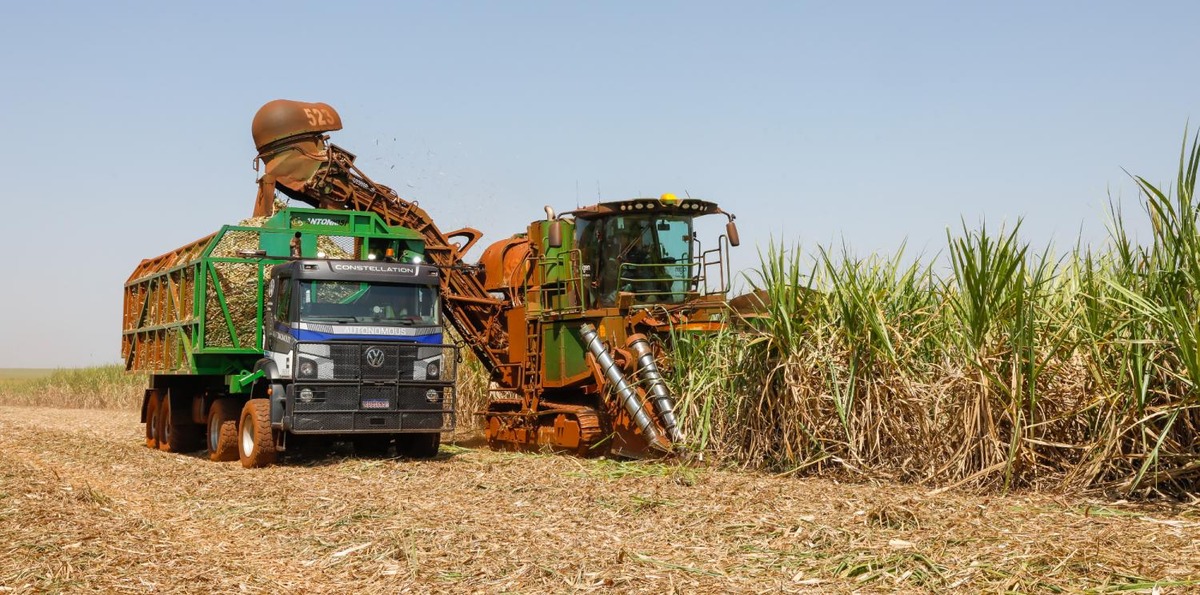Based on the Constellation 31.280, the model will be tested in sugarcane harvest with Raízen


By Décio Costa |Translated by Jorge Meditsch
Volkswagen Caminhões e Ônibus begins to follow the trend toward autonomous drive solutions. The manufacturer from Resende, RJ, developed a truck with a technology that does not demand the driver’s interference when programmed to follow a harvesting machine in sugarcane plantations.
The project is similar to the one presented some years ago by competitors, such as Mercedes-Benz, Volvo and Scania. The VWCO model was developed based on the Constellation 31.280 8×4.
In a partnership with the customization company BMB and technology Raven, the manufacturer’s engineering created a model with high flotation tires, 3-meter wide track, georeferencing system and electronic intelligence to control speed and identify obstacles.
According to the brand, the truck follows the programmed trajectory within a 2.5-centimeter error margin, impossible to be achieved by human drivers. For the evaluation, the truck also carries cameras replacing the conventional rear mirrors for a 360º view and better night visibility.
“We have a learning curve ahead. In a next step, more artificial intelligence will enhance maneuver capacity”, tells Rodrigo Chaves, VWCO’s engineering vice-president. “For now, the project aims to develop a machine that can play the role of a tractor in harvest and a truck off-season.
The autonomous Constellation will be tested in real operation by the energy company Raízen in sugarcane fields in the state of São Paulo. The vehicle has a 42-ton TGW capacity, and its powertrain has a 280 cv MAN D08 engine and a 12-speed automated transmission.
Photograph: VWCO
Vendas do Transit e versões de trabalho da Ranger cresceram 50% na região no primeiro…
Sinmgra informa que medida tem duração de 2 meses e 8 dias, atingindo pelo menos…
Pontos da marca sueca cobrem as cinco regiões do Brasil
Cerimônia será na terça-feira, 22, as 11h, no São Paulo Expo
Ministro não especificou data, mas acenou com a possibilidade de acontecer em breve ao citar…
Exposição acontecerá de 22 a 30 de novembro. Já estão confirmadas 16 marcas.